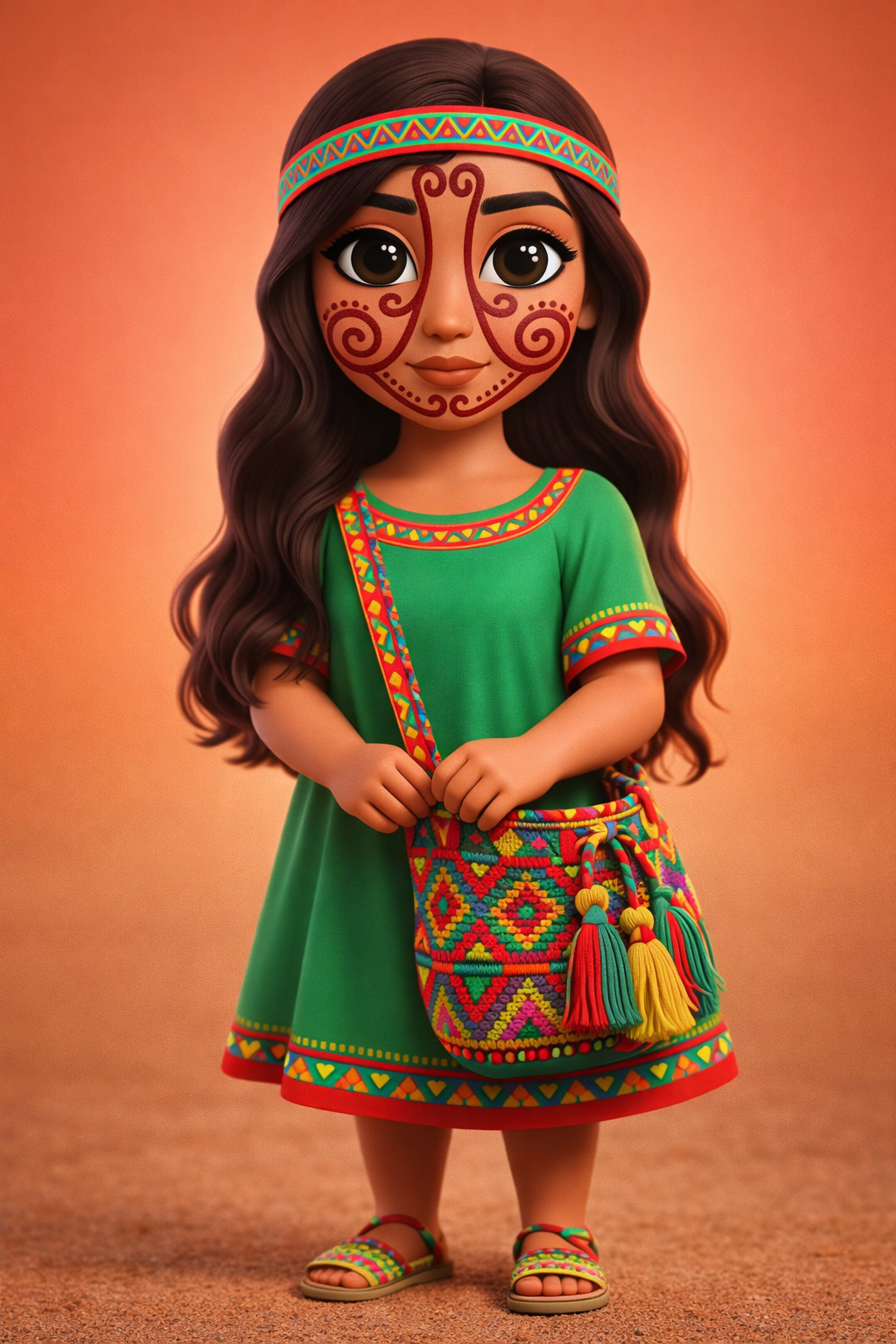What Are Wayuu Bags Made Of?
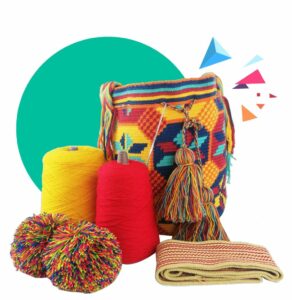 “What are Wayuu Bags Made of?” was one of the most popular questions and very misguided answers on the internet about Wayuu Bags. Many distributors on the internet claim that Wayuu artisans weave their products with “natural materials” like cotton or wool. Understandably, people think that because the items are handmade by indigenous people, they must use natural materials. Some distributors use this assumption to market Wayuu products but it could not be further from the truth. Most importantly, natural materials are expensive and hard to get in remote areas. Nowadays, artisans crochet the bags and most items produced by the Wayuu artisan industry with thread made of acrylic fiber.
“What are Wayuu Bags Made of?” was one of the most popular questions and very misguided answers on the internet about Wayuu Bags. Many distributors on the internet claim that Wayuu artisans weave their products with “natural materials” like cotton or wool. Understandably, people think that because the items are handmade by indigenous people, they must use natural materials. Some distributors use this assumption to market Wayuu products but it could not be further from the truth. Most importantly, natural materials are expensive and hard to get in remote areas. Nowadays, artisans crochet the bags and most items produced by the Wayuu artisan industry with thread made of acrylic fiber.
What materials did Wayuu people use to weave in the past?
The people of the Wayuu Tribe, artisan man and women of common ancestry and tongue, manufacture Wayuu products in the remote desert of La Guajira Colombia. There, they count with some limited materials to build their houses, make their tools, and weave. In the past, people used wool and twine to create their popular crossbody bags (Mochilas) and hammocks (Chinchorros). Though, these materials were hard to get for many, especially the less fortunate. Then, Nylon gave them a much more friendly and durable way to produce more colorful creations.
What are Wayuu Bags Made of now?
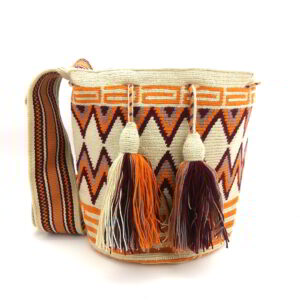
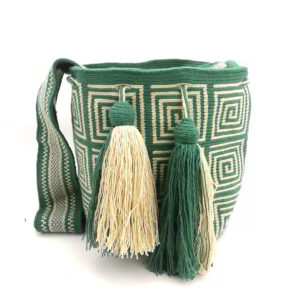
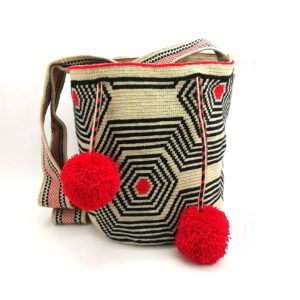
Most artisans of the tribe use colorful acrylic fiber thread to crochet the Popular Wayuu Bags. In fact, the Wayuu buy the acrylic fiber from a Colombian manufacturer, Miratex. There are some exceptions, and a few artisans choose to crochet with Nylon or cotton. Such materials are only a tiny percentage of the overall Wayuu artisan production. Thus, using acrylic fiber, you can enjoy the colorful crossbody boho purse celebrities love for many many years.
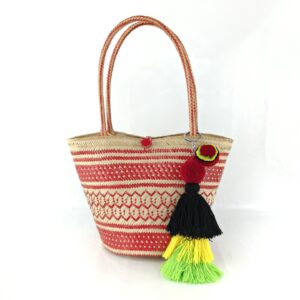 Are any Wayuu bags made with natural fibers?
Are any Wayuu bags made with natural fibers?
Some time ago, Wayuu artisans started using Mawisa straw to make beach style mochilas. Mainly, the artisans use the same weaving technique they use to weave Wayuu hats to make these purses. First, they make a base like a basket. Then, they adorn the basket style beach bag with crochet plates, braids, and pom-poms. The tribesmen learn to gather and treat the Mawisa to use the fibers for weaving different items. Given that they weave headpieces, hats, baskets, fans, covers, buckets, beach bags, planters, and more, using this natural material. Read more about traditional woven hats.

